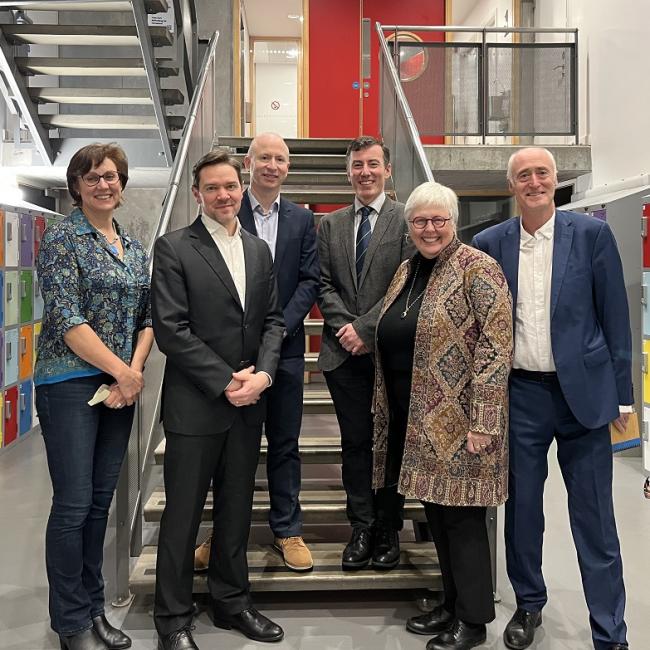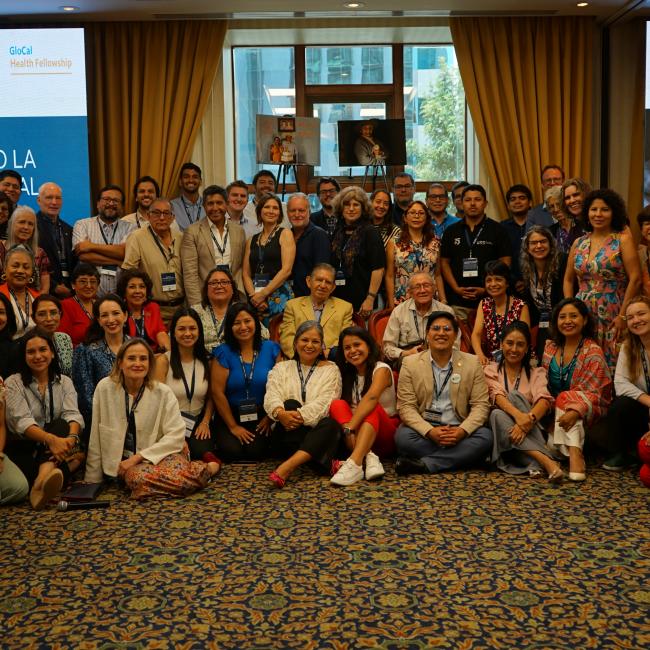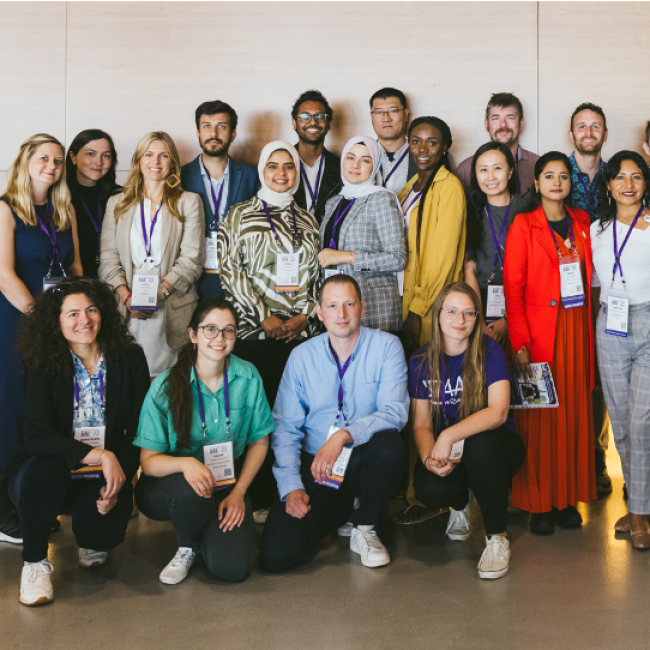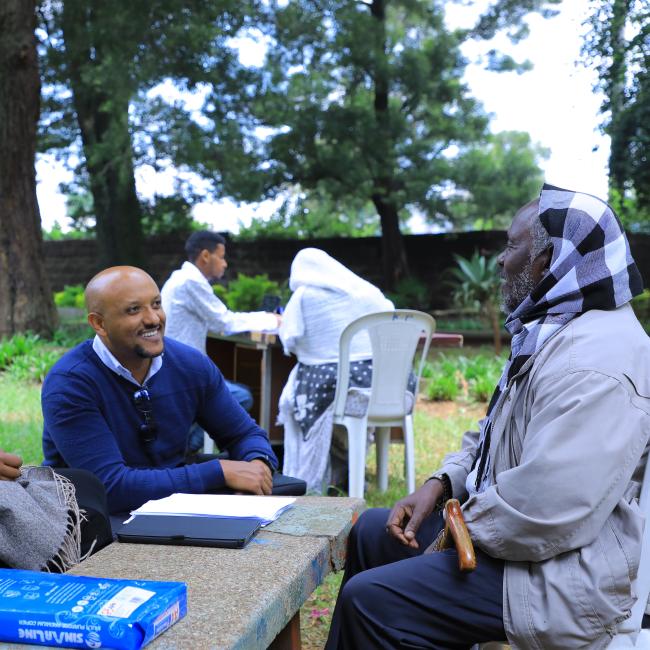Global Organisations Unite to Support Emerging Leaders Working to Change Brain Health and Dementia Landscape
Pilot Awards for Global Brain Health Leaders fund 21 pilot projects across 10 countries, worth more than half a million dollars.
Three leading organisations have joined forces to address the growing public health crisis of Alzheimer’s disease. The Global Brain Health Institute (GBHI), the Alzheimer’s Association US and UK-based Alzheimer’s Society have united to support emerging leaders in brain health and dementia through a competitive funding program - The Pilot Awards for Global Brain Health Leaders.
The awards will fund early research projects intended to discover prevention strategies and improve care and support for people around the world living with Alzheimer’s disease and other types of dementia. They are targeted to outstanding researchers and professionals whose activities are set to have real world impact.
The 2018 funded pilot projects include investigating the impact of displacement and trauma on the brain health of Syrian refugees, substance abuse and brain health, music and dementia, palliative care, hearing loss and dementia, sleep and brain training tools.
With strong evidence to guide them, the pilot projects address disparities in access to treatment to improve how care is provided for vulnerable ageing populations. They seek to improve dementia diagnosis, treatment, and care for people with dementia and their families. The researchers will investigate new ways of creating social change to reduce stigma and inspire optimism and dignity for elders. The projects will also develop and refine brain health policies through evidence-based advocacy and outreach and advance the field of brain health and dementia prevention.
Twenty-one pilot projects have just been awarded, spanning 10 countries, including Brazil, Colombia, Cuba, Greece, Ireland, Israel, Mexico, Turkey, UK and USA. The total funding awarded is more than half a million U.S. dollars. The awards of $25,000 each enable the recipients to test a project and then, if successful seek further funding from other sources to scale up their work.
Victor Valcour, Executive Director of the Global Brain Health Institute said: “Our overarching goal at GBHI is to protect the world’s ageing populations from threats to brain health by training the next generation of inter-professional global leaders. We could not achieve the same level of impact without our partnerships with the Alzheimer’s Association and Alzheimer’s Society UK.”
“The Alzheimer’s Association shares the commitment to developing the next generation of brain health leaders,” said Maria C. Carillo, Ph.D., Chief Science Officer, Alzheimer’s Association. “Dementia is a pressing global health issue. These pilot projects are important as a first step to advance scientific knowledge in the effort to delay or prevent Alzheimer’s and other dementias, as well as to improve care and quality of life for persons living with the disease.”
Dr James Pickett, Head of Research at Alzheimer’s Society, which part-funded the initiative, said: “Alzheimer’s Society is proud to unite with the Global Brain Health Institute to award funding to exceptional dementia researchers. This program nurtures new leaders in the global research challenge of dementia – investigating all aspects from cause and risk to improving care. Their research will benefit people affected by dementia around the world, and we are excited our two UK based researchers in this program are shining a light on new ways to improve end of life dementia care.”
There are estimated to be 50 million people in the world affected by dementia in 2018 according to Alzheimer’s Disease International statistics. This number is set to rise to 152 million by 2050. Much of the increase will occur in developing countries. Already 58% of people with dementia live in low and middle income countries. By 2050 this will rise to 68%.
Full list of funded pilot projects:
-
A project examining the relationship between cognitive performance and displacement, conflict and the process of adapting to a new culture in a group of older Syrian refugees who are currently living in Jordan.
-
A project on music and dementia which aims to scientifically understand how music helps people with dementia.
-
An inter-generational art-based project in the US to address loneliness and social isolation, risk factors for developing dementia.
-
A study in Mexico which will examine whether restoring gut microbiome through probiotic supplementation in people living with HIV and who have mild cognitive impairment, decreases their risk of dementia.
-
A video series called Citizen Brain that will make brain science and its associated issues accessible to the broader public, connecting recent breakthroughs in brain science and brain health with the hope of creating a world with more fairness and justice.
-
A project to develop dementia risk charts that clinicians in low and middle income countries can use with patients to analyse their risk factors, analyse who is most at risk of dementia and encourage behavioral change to reduce their risk.
-
A comparative study to better understand why older adults with advanced dementia in the US compared to those in the UK are more likely to receive very intensive end of life medical treatments that don’t benefit them and likely cause harm.
-
Linguistically and culturally appropriate language assessment tools for dementia in Chinese speakers.
-
Developing a palliative care based decision making tool for families and caregivers of people with advanced dementia in Mexico
-
An investigation in Columbia on how substance abuse may affect the age of onset and the progression of dementia.
-
A study which examines whether sleep disturbances are associated with cognitive decline and an increased risk of dementia in both US and Chinese populations.
-
Turkish researchers will examine how effective a certain type of brain training is on people with mild cognitive impairment.
-
A study in Ireland examining the association between age related hearing loss and dementia, with potential implications for dementia prevention worldwide.
-
Analysis of Alzheimer’s cafes in Ireland will determine how effective they are as an example of a psycho social support for people with dementia and their families, carers and health professionals.
-
A study in Northern Ireland to help health professionals identify which of their patients might benefit from palliative care support.
-
Research in Cuba will use a tablet based assessment tool for the early diagnosis of dementia.
-
Research which aims to understand the impact of dementia in Brazil through a study into the burden and costs of informal care giving for older adults with dementia in Brazil, compared to older adults without dementia.
-
As sleep is a modifiable risk factor known to be present in the majority of patients with Alzheimer’s disease, this study, based in Greece, will examine whether cognitive behavioral therapy for insomnia can improve sleep in patients with mild cognitive impairment.
-
An analysis of the the impact of stigma and socioeconomics on family carers of those with early onset Alzheimer disease and frontotemporal dementia in Columbia, with the aim of identifying what supports are needed by those carers and how health policy can be shaped to better support them.
-
A study on sleep disturbances in patients with frontotemporal dementia, Alzheimer’s disease and older adults.
-
A project in the US which aims to build evidence for palliative care for people with prion disease.
About the Alzheimer’s Society UK
Alzheimer's Society is the UK's leading dementia charity. We provide information and support, fund research, campaign to improve care and create lasting change for people affected by dementia in England, Wales and Northern Ireland.
The mission of Alzheimer’s Society UK is to transform the landscape of dementia forever. Until the day we find a cure, we will strive to create a society where those affected by dementia are supported and accepted, able to live in their community without fear or prejudice.
-
Alzheimer’s Society relies on voluntary donations to continue our vital work. You can donate now by calling 0330 333 0804 or visiting alzheimers.org.uk.
-
Alzheimer’s Society provides a National Dementia Helpline, the number is 0300 222 11 22 or visit alzheimers.org.uk
About the Alzheimer’s Association®
As the world’s largest nonprofit funder of Alzheimer’s and dementia research, the Association is currently investing over $160 million in more than 450 projects in 25 countries.
The Alzheimer's Association is the leading voluntary health organization in Alzheimer's care, support and research. Our mission is to eliminate Alzheimer's disease through the advancement of research; to provide and enhance care and support for all affected; and to reduce the risk of dementia through the promotion of brain health. Our vision is a world without Alzheimer's®. Visit www.alz.org or call 800.272.3900.





